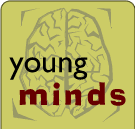| home | our mission | contact us | issue archive |

Sep 2002 / young minds :: email this story to a friend

Scrutiny for the School Board
By Laura Winter and Bob KoffOn Sunday, August 18, about 1,000 people attended the opening of the new $40 million Vashon High School. It was — and deserved to be — a celebration. A new, state-of-the-art public high school is a rarity in any community and was once seen as an impossible dream for a low-income community on the northside.
At the opening, Mayor Francis Slay noted that the new high school provides an opportunity for the St. Louis Public Schools to show that a school can turn itself around, can see test scores improve and students excited to learn. For Vashon, the stakes are high: a study of 115 students who graduated in 1999 found that only 22 went on to post-secondary education, and of those, only 10 went to a four-year college.
Vashon is indicative of the rest of the district. About half of the district's students read at grade level. Only 45% graduate. Eighty percent are eligible for free or reduced lunch, an indicator of poverty. But while most St. Louisans know that students in the St. Louis Public Schools are not making the grade, few seem motivated to do anything about it.
Part of the reason seems to stem from a lack of information. It's hard to know what policies to endorse when you aren't clear about the issues. If the St. Louis Public Schools are spending over $10,000 per year per student, among the highest per student expenditures in the metro area, shouldn't more students be reading at grade level and graduating?
Adding to the public inertia is a sense that identifying the best policies for the St. Louis Public Schools is the purview of the elected leaders overseeing the St. Louis Public Schools — the seven members of the Board of Education. Yet, few citizens attend the monthly Board meetings to learn first-hand what issues the Board is discussing. And the members of the Board of Education are a powerful group. They set policy for an organization that educates 43,000 students, is the St. Louis region's 17th largest employer, and has the region's second largest public budget ($450 million).
Enter the St. Louis Education Caucus, an effort to better engage citizens in the issues of the St. Louis Public Schools. An idea still in formation, the draft by-laws of the Caucus call for the organization to do three things: (1) educate people about the issues facing public schools in general and the St. Louis Public Schools in particular — a Public Education 101 course, if you will; (2) inform voters about the Board of Education elections — the criteria for being a candidate, the roles and responsibilities of the Board, and the candidates who seek to serve; and (3) rate candidates to the Board — much like the Bar Association rates judges — through a delegate "vote" involving representatives of the city's neighborhood organizations, area civic organizations, parents and students. Ratings will be based on public forums where candidates will discuss the issues and address questions from the delegates. At a rating meeting before each election, the Caucus will evaluate each Board candidate as well qualified, sufficiently qualified, or marginally qualified. Information on the candidates and the ratings will then be distributed to voters.
In conversations and correspondence with nearly 300 people, the Caucus idea has received strong support. Some feel that voter education is more important, others that rating candidates is the critical issue, but all have agreed that something like the Caucus is needed to better engage citizens around the education of our children.
Spurring the issue is the upcoming Board election in April 2003. Four seats will be open — the four that currently comprise the Board's voting majority. The new Board members will potentially create a new majority on the Board at a critical time as the superintendent's contract is up for review in June 2003. While the Caucus does not seek to endorse or run candidates, it does hope that the education process will at least encourage voters to take a more thoughtful approach to the election than they may have in the past, and in some cases, the Caucus may encourage parents and others interested in education to consider running themselves.
The Education Caucus is not a new idea. Other cities, mostly suburban communities like Lake Forest, Illinois, have run caucuses for years. In St. Louis, the hope is that the Caucus will engage citizens who for whatever reasons have not been active in public education. Like the new Vashon high school, the Education Caucus provides the community with an opportunity. Will St. Louis embrace it?
Information about the St. Louis Education Caucus and a copy of the draft by-laws can be obtained by e-mailing educationcaucus@yahoo.com.
Laura Winter and Bob Koff are grant officers of the Danforth Foundation and city residents concerned about the future of our city's children.
Church and State | Games | Expatriates | Communities | From the Source
It's All Happening | Young Minds | The Ordinary Eye | Elsewhere
Sights and Sounds | Media Shoegaze | A Day's Work | From the Editor© 2002 The Commonspace
